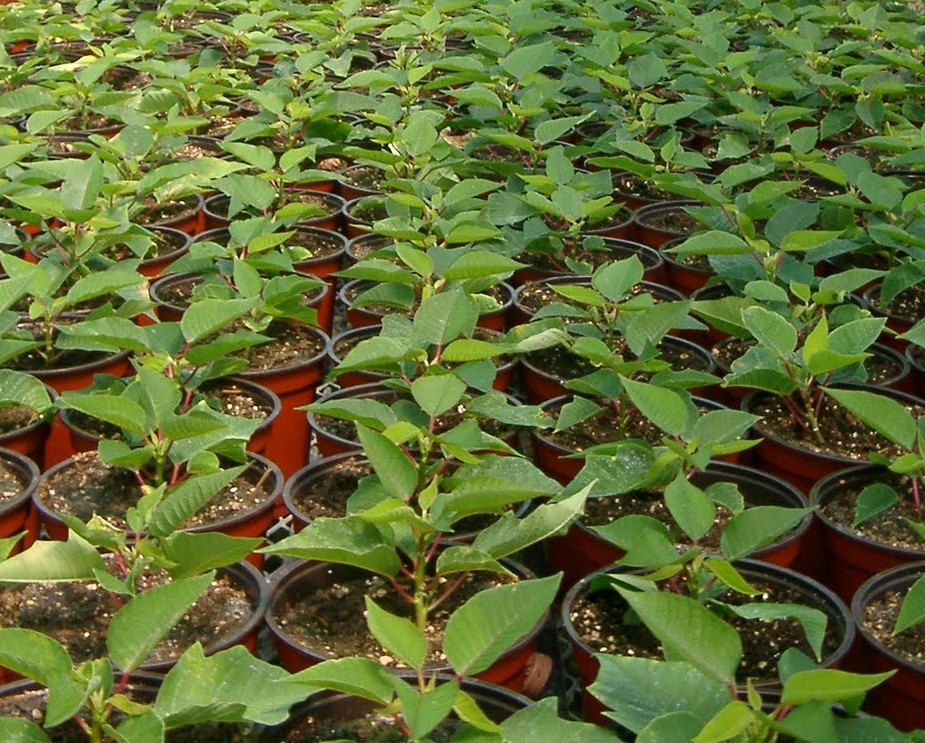
Pythium and Poinsettias
It’s an unfortunate, yet common combination. Pythium root and stem rot can occur any time during poinsettia propagation or production, as it spreads easily by water.
And yes, it’s a common cause of headaches for growers.
For Matt Carr, Growing Department Head at Olson’s Greenhouse in Salem, Utah, even several applications of chemical treatments didn’t avoid the headache.
Olson’s Greenhouse is one of the nation’s largest operations, with approximately 1,300,000 sq. ft. of growing space. Their standard practice was to apply fungicides at least three times during the production cycle, but even then they would still see signs of Pythium, according to Carr. Although that combination was used both as a preventative and a curative, they continued to have Pythium issues and lose plants because of it.
Having been familiar with RootShield at his previous operation, Carr suggested incorporating RootShield Granules into their soil mix.
“When we started mixing our own soil, it was a perfect opportunity to add RootShield into the batch system,” comments Carr. “It was an easy decision.” Spending minimal effort up front, by adding the biological fungicide to the mix from the beginning, eliminated any further labor and cost involved with fungicide treatments.
RootShield, from BioWorks, Inc., is a preventative biofungicide (Trichoderma harzianum, strain T-22) that grows on the roots and colonizes root hairs, shielding them against root damaging fungi for up to 12 weeks. Not only does it protect against Pythium, but also Fusarium, Rhizoctonia, Thielaviopsis, and Cylindrocladium. The result is a healthier root system and stronger plant.
Scott Armstrong, BioWorks’ Southern Region Technical Sales Manager, visited Olson’s several weeks after planting, to take root samples for testing. The samples were sent to the company’s lab for testing to ensure the T-22 was colonizing on the roots at the appropriate level in the soil. This service gives the grower reassurance that the active ingredient is performing as expected.
Since incorporating RootShield into their poinsettia growing practice, what was once a major problem has nearly been eliminated. Fungicide use has gone down tremendously, and they have healthier, better quality plants. Carr is now using RootShield on all crops that have a tendency for root disease that they used to treat curatively and preventatively, including geraniums, pansies, petunias, and gerbera daisies.
Since Olson’s is a VeriFlora Certified operation, it’s an added benefit that RootShield is also VeriFlora Certified and OMRI listed. “We prefer biological chemistry and to be able to reduce the impact on the environment,” adds Carr. “Working with a product that has a low (0) REI is a great benefit as well.”
The change in process has been effortless and effective. Simply adding RootShield Granules into the initial soil mix to prevent prevalent root diseases, no further treatments are needed, plant losses are drastically reduced, and the poinsettias are healthy and look great for shipping.
Tamara Brister is the marketing manager at BioWorks. She can be reached at tbrister@bioworksinc.com


 Video Library
Video Library 




















